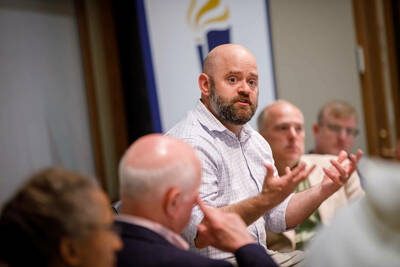ND Law Professor Carter Snead files amicus brief in landmark abortion case

O. Carter Snead, professor of law at Notre Dame Law School and director of the de Nicola Center for Ethics and Culture, has filed (with Mary Ann Glendon, Learned Hand Professor of Law, emerita, Harvard University) an amici curiae brief in the Supreme Court of the United States in the case Dobbs v. Jackson Women’s Health Organization, the most important case concerning the law of abortion since Roe v. Wade (1973) and Planned Parenthood v. Casey (1992).
In the brief, Professors Snead and Glendon argue that “The Court must overrule Roe v. Wade, Doe v. Bolton, and Planned Parenthood v. Casey, and restore to the people’s elected representatives the authority to care rightly for mothers, children, and families.”
To this end, Professors Snead and Glendon note that “The Court’s abortion jurisprudence is completely untethered from the Constitution’s text, history, and tradition.” They continue that “It has imposed an extreme, incoherent, unworkable, and antidemocratic legal regime for abortion on the nation for several decades (pursuant to constantly shifting rules, standards, and rationales),” and thus principles of stare decisis warrant overruling these precedents. Finally, they argue that “The Court’s abortion jurisprudence grafted onto the Constitution a vision of what it means to be and flourish as a human being that isolates mother and child, pitting them against one another in a narrative of zero-sum conflict among strangers, depriving them of much needed sources of protection, support and care.”
The full text of the brief can be read at the Supreme Court website.
Snead is professor of law, concurrent professor of political science, and director of the de Nicola Center for Ethics and Culture. He is author, most recently, of What It Means to be Human: The Case for the Body in Public Bioethics (Harvard University Press 2020), selected as one of the “Top Ten books of 2020” by the Wall Street Journal. He served as General Counsel to the U.S. President’s Council on Bioethics, as U.S. Permanent Observer to the Council of Europe’s Steering Committee on Bioethics, led negotiations on behalf of the United States government at UNESCO for the Universal Declaration on Bioethics and Human Rights, and served a four-year appointed term on UNESCO’s International Bioethics Committee, the only bioethics advisory body in the world with a global mandate. He is an elected fellow of the Hastings Center, the world's premier bioethics research institute.
Mary Ann Glendon is the Learned Hand Professor of Law, emerita, at Harvard Law School, and a Permanent Senior Distinguished Research Fellow at the de Nicola Center for Ethics and Culture. She served as U.S. Ambassador to the Holy See, chaired the U.S. State Department Commission on Unalienable Rights, was a member of the Commission on International Religious Freedom, and the U.S. President’s Council on Bioethics. She led the Holy See’s delegation at the 1995 U.N.’s Women’s Conference in Beijing. She is the author of numerous award-winning and widely translated works including The Forum and the Tower (2011), Rights Talk (1991), and Abortion and Divorce in Western Law (1987). She received the National Humanities Medal and was an elected member of the American Academy of Arts and Sciences.
Originally published by at ethicscenter.nd.edu on July 29, 2021.